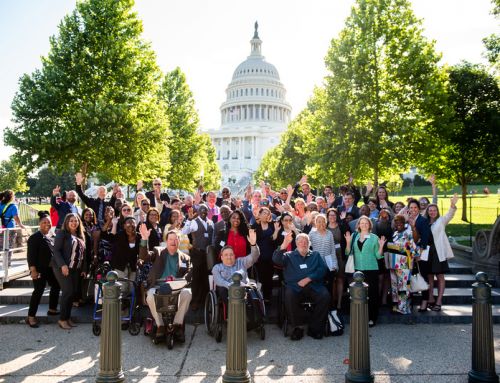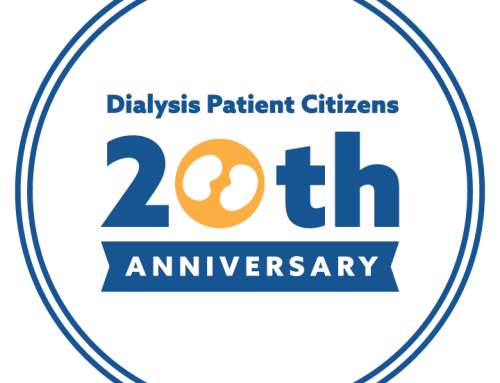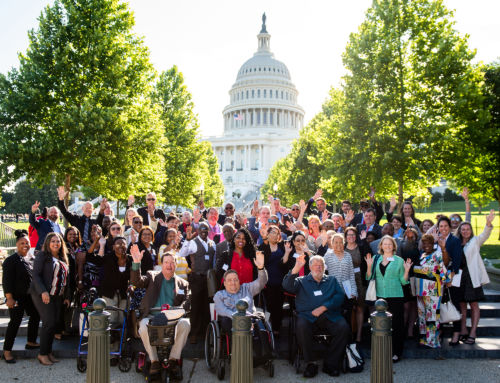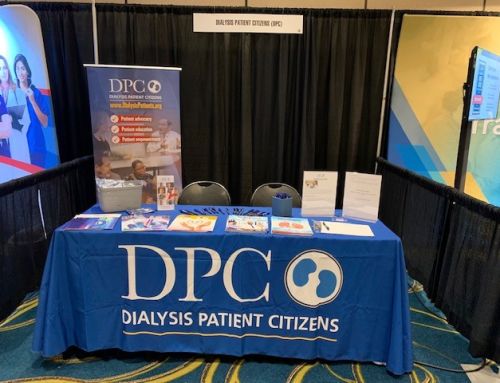Hon. Marilyn Tavenner, Administrator
Centers for Medicare and Medicaid Services
Department of Health and Human Services
Hubert H. Humphrey Building
200 Independence Ave, SW
Washington, D.C. 20201
Re: Coverage of Renal Dialysis in Exchange Plans
Dear Administrator Tavenner:
Dialysis Patient Citizens, America’s largest patient-led organization representing dialysis patients, is comprised of more than 26,000 dialysis and pre-dialysis patients and their families. We seek to ensure the patient point of view is considered by policy makers.
We are writing to express our concerns about language we found in a spot-check of exchange plan documents that appears to permit disenrollment of patients when their kidneys fail. We ask that you investigate this matter and clarify the status of kidney patients who purchase health insurance plans in the federal and state exchanges.
As you know, consumer advocates must always be vigilant for signs that health insurers are engaging in risk selection. We examined health plan documents posted on the Rhode Island and Connecticut state insurance exchange websites to determine whether any plans were attempting to discourage patients with chronic kidney disease (CKD) from enrolling. As best we can tell, these are the only exchanges that make complete coverage documents available to “window shoppers” on their website.
What we found was that at least two insurers offering coverage indicated that their enrollees would no longer be eligible for coverage once they are “entitled to” or “eligible for” Medicare (please see attached exhibits.) While coverage expansion in the Affordable Care Act was not, of course, intended to supplement Medicare coverage for the elderly, end-stage renal disease (ESRD) patients can become entitled to Medicare coverage without regard to age. We do not believe it was Congress’ intent that non-elderly Americans lose their exchange coverage due to the progression of an illness—indeed, 45 C.F.R § 156.125 specifies that a plan does not provide essential health benefits “if its benefit design, or the implementation of its benefit design, discriminates based on an individual’s age, expected length of life, present or predicted disability, degree of medical dependency, quality of life, or other health conditions.” Social Security Administration guidelines clearly state people that rely on renal replacement treatment to live qualify as disabled.
If a patient can lose coverage when his or her CKD progresses to ESRD, an insurer has a perverse financial incentive not to take all possible measures to preserve the patient’s kidney functions. This is because CKD typically accompanies other co-morbidities, making CKD patients more expensive than other enrollees. An insurer can off-load those expenses onto the Medicare program if the patient’s kidneys fail sooner rather than later. This perverse incentive is not present when, as with group health insurance, plans pay for renal dialysis for up to 30 months before Medicare becomes the primary insurer. We would further note that onset of kidney failure marks a critical period in which continuity of care is crucial.
We think that the ACA coverage expansion offers an opportunity for a natural experiment to determine whether exchange health plans can better coordinate care for non-elderly CKD and ESRD patients. While dialysis patients will always be grateful that Medicare benefits were extended to them in 1972, there are disadvantages to Medicare. First, there is no coordination of care in fee-for-service Medicare, and ESRD patients are not permitted to enroll in Medicare Part C plans. Second, the same geographic variations in expenditures that plague the Medicare program generally are also present in expenditures on ESRD patients, suggesting that there is overutilization in certain regions that could be alleviated by the managed care techniques practiced by exchange plans. Finally, Medicare Savings Program assistance is not as generous to low-income patients as are subsidies in the exchanges for patients with income between 100% and 200% of the poverty line. For persons earning between $11,000 and $23,000 a year, ACA guarantees that exchange health plans cover at least 87% of average medical expenses. This is not only more generous than Medicare, it is actually more generous than the average large employer-sponsored insurance plan. This assistance could be important for patients who experience the onset of serious illness well before they have accumulated pensions or retirement savings.
Finally, we are concerned that the health plans with the Medicare eligibility exclusions in their Subscriber Agreements will gain an unfair advantage over competing plans that do not use this exclusionary language. This would have the effect of penalizing insurers who do the right thing. We urge CMS to clarify that these exclusions are not permitted.
Thank you for your consideration of our comments and concerns. If you have any questions or would like additional information, please do not hesitate to contact me or our Government Affairs Director Jackson Williams.
Sincerely,
Hrant Jamgochian, J.D., LL.M.
Executive Director






















